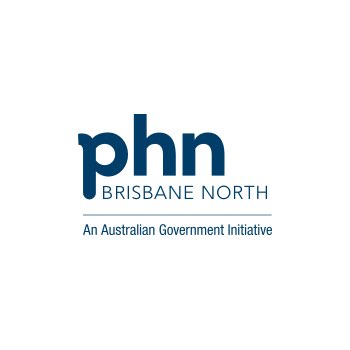

Supporting Families and Carers
Overview
Objectives and actions
Action
Planned completion
Status
2.1.1
All providers to promote the Carer Gateway and regional Integrated Carer Support Service and ensure specific mental health carer advocacy, information and capacity building support is available for Carers in relation to mental health, suicide prevention and Alcohol and Other Drugs
Planned completion
Ongoing
Status
On track
Updated
Action
Planned completion
Status
2.2.1
Review the generic Carer pathway for Carers and review inclusion of Carer information and supports in Health Pathways every 12 months
Planned completion
Ongoing
Status
On track
Updated
2.2.2
Encourage providers to nominate a named contact person for Carers, such as a peer worker or Carer liaison role
Planned completion
Status
notstarted
Updated
2.2.3
Develop a platform for the promotion of services and supports providing income and employment support to Carers, particularly in peer worker roles
Planned completion
Status
notstarted
Updated
Action
Planned completion
Status
2.3.1
Ensure providers to incorporate approaches such as the ‘Triangle of Care’ model where consumers, carers and providers work together as partners
Planned completion
Ongoing
Status
On hold
2.3.2
Brisbane North PHN and Metro North Health continue involvement with the Carers Gateway, to ensure it meets the needs of Carers of people experiencing mental illness, suicide risk and people experiencing problems related to the use of alcohol and other drugs
Planned completion
Ongoing
Status
On track
Updated
2.3.3
Review the full and effective involvement of Carers in the National Disability Insurance Scheme (NDIS), both at an individual and policy level
Planned completion
Status
notstarted
Updated
2.3.4
Continue Carers involvement in PHN and Metro North Health service planning, delivery and governance structures and extend this approach to other providers
Planned completion
Ongoing
Status
On track
2.3.5
Ensure support structures and capacity building opportunities are available for carers and families engaged in services plans and opportunities for peer connection for carer representatives
Planned completion
Ongoing
Status
On track
Updated
Action
Planned completion
Status
2.4.1
Providers are required to participate in education and training on the perspectives of Carers and on family-inclusive practice
Planned completion
2019/20
Status
On hold
2.4.2
Ensure all health practitioners have the requisite qualifications for their role and are matched to the level of need of the service Consumer, Carers and Families
Planned completion
2019/20
Status
On hold
2.4.3
Facilitate improved access to mental health, suicide prevention and alcohol and other drug treatment services when and where service Consumers need it, with providers sharing outcomes and learnings of improvements
Planned completion
Ongoing
Status
On track
Updated
Action
Planned completion
Status
2.5.1
Strengthen Consumer and Carer-centred practice, particularly at time of diagnosis, intake or admission to a service, by actively referring Carers to support options. Services providing information for Carers regarding participants clinical or support information is done with the consent of the Consumer
Planned completion
Ongoing
Status
On track
Updated
2.5.2
Ensure early involvement of carers in discharge and transition planning, working within privacy policies and procedures
Planned completion
Status
notstarted
Updated
2.5.3
Ensure that providers incorporate appropriate standards and approaches such as the six partnership standards for working with Carers and to undertake any associated self-assessment processes
Planned completion
Status
notstarted
Updated
Governance
The Families and Carers Action Group was convened by Carers Queensland and met regularly throughout 2019 – 2020. This group was comprised of stakeholders with a vested interest in improving the active role that families and carers play in supporting people with mental illness in their lives. The Families and Carers Stakeholder Group was established to progress key actions and objectives of Chapter Two – Supporting families and carers within Planning for Wellbeing. The Families and Carers Stakeholder Group is no longer active, and a review is underway to determine best collaborative practice to further implement the actions and objectives for supporting families and carers in Brisbane North.

Membership
No current membership, as per above
Achievements
Planning for Wellbeing acknowledges the integral role that families and carers play in our community. Families, carers and other local community supports are typically the first responders to people with mental illness, alcohol and drug use and/or suicide risk; and much of the ongoing care that is provided to people is provided by families and carers. Although many carers don’t formally acknowledge this role, Planning for Wellbeing acknowledges that for those that do – there are ongoing challenges experienced by carers in being included in the more formalised care being provided to their loved one.
Chapter Two of Planning for Wellbeing is dedicated to Supporting Families and Carers, and proposes four shared objectives to improve the way families and carers are included in more formalised care, as well as improving outcomes for families and carers themselves. A summary of some key work against the shared objectives is included below.
Summary of Achievements
The Carer Gateway launched their new digital and phone services in July 2019 and have been providing practical information and advice for carers, assisting connection to services as appropriate, and providing free counselling services over the phone. Local carer support services are working with carers and new Carer Gateway partners to provide information on the transition of face-to-face and emergency respite services that will be launched in April 2020.
The actions to achieve this objective are focused on the health and wellbeing of families and carers, acknowledging the ongoing demands of the caring role, and the impact this has on the carers’ own wellbeing. A specific HealthPathway on ‘Carer Stress’ has been developed, highlighting the impact the caring role can have on carers, and encouraging health practitioners to enquire about the physical and emotional wellbeing of carers. Active management of the stress is advised, along with suggestions for carer supports available in the region.
The actions to achieve this objective are focused on activities that highlight the valuable insights that carers have, and integral role they can play in supporting their loved one. The PHN proudly asserts that all partnership groups that are supporting implementation of Planning for Wellbeing have Lived Experience Representatives as core members, and where possible, the insights and input from people with lived experience as a carer, along with people with lived experience as a service user, are obtained. The perspectives of carers are acknowledged, valued and sought whenever possible.
The actions to achieve this objective are focused on ensuring providers have the requisite knowledge, training and skills to seek out and effectively engage carers appropriately. As an indicator of progress towards this, contractually, all PHN commissioned providers, are expected to ensure that practitioners engaged to deliver services have the requisite training in family-inclusive practice – whether that be for mental health services, alcohol and other drug services, or suicide prevention services.
Success stories
Engaging Carers Queensland to progress activity
In July 2019, the PHN engaged Carers Queensland – the peak body advocating for enhanced outcomes for families and carers – to establish and…
Building the Resilience of Carers
As part of the regular support members of the PPIMS Network provide to each other, the need to support and build the resilience of…
Promoting the role of Carers in the NDIS
Objective 2.3: Families and carers are listened to and involved in services Action 2.3.3: Advocate…

